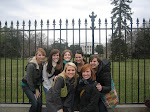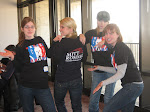 While riding a plane some time ago, I picked up a copy of the New York Magazine. As I thumbed through it, I came to a section titled “Strictly Personals.” I counted 159 advertisements placed by lonely men and women seeking partners. It was evident that those who had placed the ads had labored to cast themselves in the best light possible. I wish I had time to read some of them to you. You would enjoy them. There was nothing of an unseemly nature. It was easy to sense that behind these witty and clever descriptions was much of sadness and loneliness, a great desire to find an amiable companion with whom to walk the road of life...
While riding a plane some time ago, I picked up a copy of the New York Magazine. As I thumbed through it, I came to a section titled “Strictly Personals.” I counted 159 advertisements placed by lonely men and women seeking partners. It was evident that those who had placed the ads had labored to cast themselves in the best light possible. I wish I had time to read some of them to you. You would enjoy them. There was nothing of an unseemly nature. It was easy to sense that behind these witty and clever descriptions was much of sadness and loneliness, a great desire to find an amiable companion with whom to walk the road of life... Of course, all in marriage is not bliss. Years ago I clipped these words from a column written by Jenkins Lloyd Jones:
“There seems to be a superstition among many thousands of our young who hold hands and smooch in the drive-ins that marriage is a cottage surrounded by perpetual hollyhocks to which a perpetually young and handsome husband comes home to a perpetually young and ravishing wife. When the hollyhocks wither and boredom and bills appear the divorce courts are jammed. …
“Anyone who imagines that bliss is normal is going to waste a lot of time running around shouting that he has been robbed.” (Deseret News, 12 June 1973, p. A4.)
Stormy weather occasionally hits every household. Connected inevitably with the whole process is much of pain—physical, mental, and emotional. There is much of stress and struggle, of fear and worry. For most, there is the ever-haunting battle of economics. There seems never to be enough money to cover the needs of a family. Sickness strikes periodically. Accidents happen. The hand of death may reach in with dread stealth to take a precious one.
Through the history of the generations of man, the actions of rebellious children have been ladened with sorrow and heartbreak, but even when there has been rebellion, the strong cords of family life have reached out to encircle the rebellious one.
I know of no more beautiful story in all of literature than that told by the Master as recorded in the fifteenth chapter of Luke. It is the story of a heady and greedy son who demanded his inheritance, which he wasted until none was left. Penitent, he returned to his father, and his father, seeing him afar off, ran to him and embraced him and fell upon his neck and kissed him.
Some of you within the sound of my voice could recount family sorrows in your own experience. But among the greatest of tragedies, and I think the most common, is divorce. It has become as a great scourge. The most recent issue of the World Almanac says that in the United States during the twelve months ending with March 1990, an estimated 2,423,000 couples married. During this same period, an estimated 1,177,000 couples divorced. (See The World Almanac and Book of Facts, 1991, New York: World Almanac, 1990, p. 834.)
This means that in the United States almost one divorce occurred for every two marriages.
Those are only figures written on the pages of a book. But behind them lies more of betrayal, more of sorrow, more of neglect and poverty and struggle than the human mind can imagine. Millions of those divorced in this nation are lonely, frustrated, insecure, and unhappy. Millions of single parents are struggling to rear families, carrying burdens beyond their capacity to handle. Millions of children are growing up in single family homes from which the parent, usually the mother, out of necessity, is absent much of the time. These “latch-key children” return from school each day to empty houses, where, in many cases, there is inadequate food and only the refuge of the television set. Not only are the children suffering, but all of society is paying a frightful price for their circumstances. As they grow older, the incidence of drugs increases among them. Vast numbers turn to criminal behavior. Inadequately trained, many are unemployed. Some aimlessly squander their lives. Millions have become the “flotsam and jetsam” of society, washed upon the shore by oceans of neglect, abuse, and frustration, helpless to correct their circumstances. Time magazine, discussing the problems of New York City, stated that the most serious is the breakdown of the family. Sixty percent of those in New York City public schools, totalling some 600,000, come from one-parent homes. Comparable studies would doubtless bring forth similar statistics for other large cities in America and most of the large cities of the world.
We are building and maintaining more prisons than we can afford. The costs are enormous, almost beyond comprehension.
In an alarming percentage of the cases of those who are warehoused in these facilities, there will be found in their background a broken home where a father abandoned his family and a mother struggled in vain to handle the overpowering odds against her.
Why all of these broken homes? What happens to marriages that begin with sincere love and a desire to be loyal and faithful and true one to another?
There is no simple answer. I acknowledge that. But it appears to me that there are some obvious reasons that account for a very high percentage of these problems. I say this out of experience in dealing with such tragedies. I find selfishness to be the root cause of most of it.
I am satisfied that a happy marriage is not so much a matter of romance as it is an anxious concern for the comfort and well-being of one’s companion.
Selfishness so often is the basis of money problems, which are a very serious and real factor affecting the stability of family life. Selfishness is at the root of adultery, the breaking of solemn and sacred covenants to satisfy selfish lust. Selfishness is the antithesis of love. It is a cankering expression of greed. It destroys self-discipline. It obliterates loyalty. It tears up sacred covenants. It afflicts both men and women.
Too many who come to marriage have been coddled and spoiled and somehow led to feel that everything must be precisely right at all times, that life is a series of entertainments, that appetites are to be satisfied without regard to principle. How tragic the consequences of such hollow and unreasonable thinking!
Bitter consequences are seen in the lives of children who need but do not have a father who loves them, teaches them, protects them, and leads them along the path of life by example and precept....
There is a remedy for all of this. It is not found in divorce. It is found in the gospel of the Son of God. He it was who said, “What therefore God hath joined together, let not man put asunder.” (Matt. 19:6.) The remedy for most marriage stress is not in divorce. It is in repentance. It is not in separation. It is in simple integrity that leads a man to square up his shoulders and meet his obligations. It is found in the Golden Rule.
Marriage is beautiful when beauty is looked for and cultivated. It can be ugly and uncomfortable when one is looking for faults and is blinded to virtue. As Edgar A. Guest once remarked, “It takes a heap o’ livin’ in a house t’ make it home.” (“Home,” in Collected Verse of Edgar A. Guest, Chicago: Reilly and Lee Co., 1934, p. 12.) That is true. I can show you throughout this church hundreds of thousands of families who make it work with love and peace, discipline and honesty, concern and unselfishness.
There must be recognition on the part of both husband and wife of the solemnity and sanctity of marriage and of the God-given design behind it.
There must be a willingness to overlook small faults, to forgive, and then to forget.
There must be a holding of one’s tongue. Temper is a vicious and corrosive thing that destroys affection and casts out love.
There must be self-discipline that constrains against abuse of wife and children and self. There must be the Spirit of God, invited and worked for, nurtured and strengthened. There must be recognition of the fact that each is a child of God—father, mother, son, and daughter, each with a divine birthright—and also recognition of the fact that when we offend one of these, we offend our Father in Heaven.
There may be now and again a legitimate cause for divorce. I am not one to say that it is never justified. But I say without hesitation that this plague among us, which seems to be growing everywhere, is not of God, but rather is the work of the adversary of righteousness and peace and truth.
(Due to time constraints, the remainder of this talk was not given over the pulpit. President Hinckley has asked that it be included in this text.)
You need not be his victims. You can rise above his wiles and entreaties. Get rid of the titillating entertainment, the pornography that leads to evil desires and reprehensible activity. Wives, look upon your husbands as your precious companions and live worthy of that association. Husbands, see in your wives your most valued asset in time or eternity, each a daughter of God, a partner with whom you can walk hand in hand, through sunshine and storm, through all the perils and triumphs of life. Parents, see in your children sons and daughters of your Father in Heaven, who will hold you accountable for them. Stand together as their guardians, their protectors, their guides, their anchors.
The strength of the nations lies in the homes of the people. God is the designer of the family. He intended that the greatest of happiness, the most satisfying aspects of life, the deepest joys should come in our associations together and our concerns one for another as fathers and mothers and children.
God bless the homes of our people. May He bless those homes that there may be loyal and true fathers, and good and wonderful mothers, and obedient and ambitious children reared in “the nurture and admonition of the Lord” (Enos 1:1), I humbly pray in the name of Jesus Christ, amen.
 It's true, it is the next to last day of January and I am just joining the band wagon of posting my New Years Resolutions to the ol' blog. Why wait? Well, let's be honest, I had to make sure that I would actually achieve them for 1/12 of the year first ;) Ok--just kidding (kind of). Here they are in no specific order:
It's true, it is the next to last day of January and I am just joining the band wagon of posting my New Years Resolutions to the ol' blog. Why wait? Well, let's be honest, I had to make sure that I would actually achieve them for 1/12 of the year first ;) Ok--just kidding (kind of). Here they are in no specific order:











